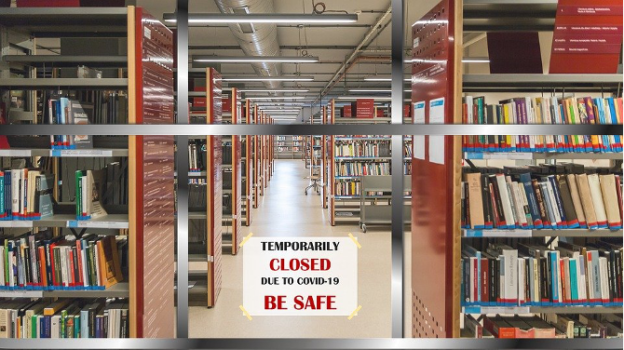
By Josh Larkin, Staff Writer
Since early this year, the country has endured numerous challenges relating to public health and safety due to the global pandemic of COVID-19. Nationally, over 200,000 people have died while having, or presumed to have had, COVID-19.[1] At the time of writing this article, Pennsylvania has suffered the loss of 8,562 people since the first case in the Commonwealth was diagnosed in March 2020. [2] While COVID-19 continues to present numerous challenges to medical professionals across the globe. The virus is also testing our political system asevidenced by recent court challenges to emergency powers held by the executive branch in state governments. The question remains: what exactly can the state executive branch do to prevent further spread of the virus?
Our nation’s federalist system of government, granted by the U.S. Constitution, distributes decision-making authority between the federal and state governments. [3] Under the Constitution, the federal government’s powers are enumerated, meaning they cannot stretch beyond the powers granted therein. [4] While the federal government can address issues relating to defense, foreign policy, and monetary policy, the Tenth Amendment reserves all non-enumerated powers to the states. [5] Often referred to as the “police power,” states reserve the power to enact and enforce laws relating to the general welfare, safety, and health of the public. [6] With states reserving the police power, state governments become the paramount factor in determining responses to individuals infected with COVID-19; however, this has caused an issue in several states across the country.
Pennsylvania Governor Tom Wolf has been one of several governors across the nation to face mixed reviews for his response to COVID-19. On April 1, 2020, Governor Wolf issued a statewide stay-at-home order. [7] The order restricted Pennsylvanians from traveling outside their homes and required all non-life-sustaining businesses to close in an effort to mitigate the spread of COVID-19. [8] Governor Wolf’s ability to issue the April 1 order arises under 35 Pa.C.S.A. § 7301. This statute gives the governor broad power to declare a state of emergency, which in turn, allows for issuing emergency orders without the General Assembly’s approval. [9]
While Governor Wolf’s response has received praise from some, others view the orders as hostile to their constitutional rights. The result has been a series of lawsuits seeking to end Governor Wolf’s emergency powers.One instance of litigation was brought by Allegheny County House Republican candidate Danny DeVito, joined by several Pennsylvania businesses, including Kathy Gregory, B & J Laundry, LLC, Caledonia Land Co., and Blueberry Hill Public Golf Course & Lounge. [10] DeVito originally petitioned for a writ of certiorari to the United States Supreme Court, which was subsequently denied. [11] DeVito then petitioned the Pennsylvania Supreme Court for relief [12] The Pennsylvania Supreme Court held that the Governor had the statutory authority to issue the executive order [13] , that COVID-19 qualified as a “natural disaster” as set forth under the Emergency Code [14] , that Governor Wolf’s executive order was a proper exercise of the police power reserved to the state [15] , and that the executive order did not violate the First Amendment. [16] The Court further held that owners of non-life-sustaining businesses were not deprived of due process when the Governor ordered them to close. [17]
While the Pennsylvania Supreme Court concluded Governor Wolf’s executive order was constitutional, litigation for this issue is still ongoing. The most recent case considering Governor Wolf’s use of emergency power declared the shutdown of non-life-sustaining businesses unconstitutional. [18] In that case, four Western Pennsylvania counties including Butler, Greene, Fayette and Washington, along with U.S. Rep. Mike Kelly (R-Pa.) and state Rep Daryl Metcalfe (R-Butler), challenged the Governor’s order in Federal court. [19] U.S. District Judge William Stickman IV held that Governor Wolf’s order was “arbitrary and violated citizens’ constitutional rights.” [20] Judge Stickman acknowledged that Governor Wolf acted with “the good intention of addressing a public health emergency… but [that] even in an emergency, the authority of government is not unfettered.” [21] Judge Stickman further stated that, “the Constitution cannot accept the concept of a ‘new normal’ where the basic liberties of the people can be subordinated to open-ended emergency mitigation measures.” [22] Governor Wolf appealed the case to the United States Court of Appeals for the Third Circuit and filed a motion to stay with Judge Stickman in order to keep crowd-size restrictions in place until the case could be heard on appeal. [23] Judge Stickman denied the motion, but Governor Wolf subsequently secured a stay at the Circuit Court. [24] While the most recent decision by Judge Stickman has yet to be heard for appeal, it is clear that COVID-19 proved to be both a health and government crisis.
[1] Centers for Desease Control and Prevention, Provisional Death Counts for Coronavirus Disease 2019 (COVID-19), https://www.cdc.gov/nchs/nvss/vsrr/covid19/index.htm
[2] https://www.health.pa.gov/topics/disease/coronavirus/Pages/Cases.aspx.
[3] Jennifer Selin, The Conversation, https://theconversation.com/trump-versus-the-states-what-federalism-means-for-the-coronavirus-response-136361
[4] Id.
[5] U.S. Const. Amend. X
[6] Corenell Law School, Legal Information Institute, https://www.law.cornell.edu/wex/police_powers#:~:text=In%20the%20United%20States%2C%20state,and%20health%20of%20the%20public.
[7] Press Release, Public Health, May 7, 2020, https://www.governor.pa.gov/newsroom/gov-wolf-sec-of-health-take-actions-on-stay-at-home-orders-issue-yellow-phase-orders/.
[8] Id.
[9] 35 Pa.C.S.A. § 7301
[10] Michael Tanenbaum, Philly Voice, Apr. 28, 2020, https://www.phillyvoice.com/pennsylvania-coronavirus-lockdown-danny-devito-us-supreme-court-covid-19/
[11] Friends of Danny DeVito v. Wolf, No. 19-1265, 2020 WL 5882242 (U.S. Oct. 5, 2020)
[12] Friends of Danny DeVito v. Wolf, 227 A.3d 872, 876 (Pa. 2020).
[13] Id. at 892.
[14] Id. at 896.
[15] Id. at 902.
[16] Id. at 903.
[17] Id. at 903.
[18] WHTM Staff, The Associated Press, https://www.abc27.com/news/health/coronavirus/coronavirus-pennsylvania/four-western-pennsylvania-counties-win-lawsuit-against-governor-wolf-shutdown-ruled-unconstitutional/
[19] Id.
[20] Id.
[21] Id.
[22] Id.
[23] Paula Reed Ward, Trib Live, Oct. 1, 2020, https://triblive.com/news/pennsylvania/appeals-court-allows-pennsylvania-to-restrict-crowd-size/
[24] Id.